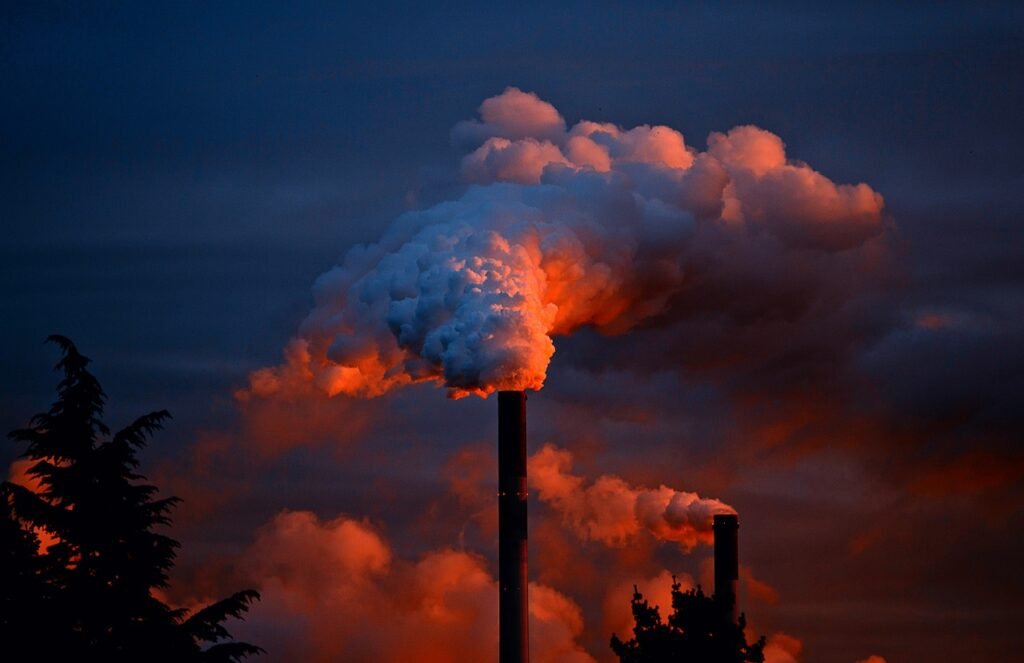While life is a sum of many factors in an ecological interconnection, not many elements are as vital to our health and well-being as clean water and air. These basic commodities form the very lifeblood of ecosystems and thus a cornerstone for human health and prosperity. While clean water hydrates us, maintains sanitation, and supports food production, pure air is equally vital for our respiratory health. Both face challenges from industrialization, urbanization, and climate change. This paper highlights the vital importance of clean water and air, examines the dangers of their degradation, and outlines measures we can take to protect them for current and future generations.
The Significance of Clean Water

- Hydration: It relies on clean water. Water cleanness allows the better hydration of the organism, which is supposed to keep a person healthy, physically fit and clearheaded. Without clean water, proper hydration is not possible, which may be the reason for health disturbances and impairment of functions within one’s organism.
- Disease Prevention: Clean water aids in the prevention of diseases and protection of public health. It averts diseases such as cholera and dysentery because of the elimination of harmful pathogens in the water. Clean water allows the right sanitation and hygiene practices that reduce infections. Moreover, clean water can help prevent malnutrition through proper digestion of the nutrients in the body. In this respect, clean water protects against environmental contaminants and supports overall good health. Thus, access to clean water is crucial for disease prevention and enhancing quality of life.
- Hygiene and Sanitation: It enables proper hand-washing, bathing, and removal of body and other wastes associated with bodily functions. All these activities help prevent disease and infection. Clean water enables proper hygiene and sanitation practices that help reduce rates of infection and enhance public health. When clean water is not available, these very basic practices become cumbersome and illness and contamination are far more likely.
- Ecosystem Health: It provides a safe home for plants and animals, thus supporting aquatic life in rivers, lakes, and wetlands. Clean water ensures that these ecosystems support biodiversity, perform vital ecological functions such as filtering water and controlling floods. In the event of polluted water, just the opposite occurs: disruption, loss of wildlife, deterioration of water quality, and general ecosystem impairment. Sources of clean water are, therefore, very important to be preserved if healthy and balanced ecosystems are to be maintained.
The Importance of Clean Air

- Respiratory Health: Clean air, with minimal pollutants and harmful particles, supports optimal lung health and reduces the risk of respiratory conditions such as asthma, bronchitis, and chronic obstructive pulmonary disease. Polluted air irritates the airways, leading to exacerbation of present respiratory problems and the development of long-term health issues. Ensuring access to pure air, respiratory ailments will be prevented, life enhanced, and better well-being contributed to.
- Cardiovascular Health: The heart functions properly because of the breathing of pollutant-free and harmful-particle-free air. On the other hand, poor air nurtures inflammation and oxidative stress that present a high risk for heart-attack-related diseases, stroke, and hypertension. Clean air keeps blood vessels healthy, normalizes blood pressure, and maintains low workload on the heart since it assists in keeping the heart healthy. Access to clean air is basically protection of heart health and prohibition from cardiovascular disease.
- Climate Change: Clean air, with low levels of greenhouse gases and pollutants, helps mitigate the greenhouse effect and global warming. High concentrations of CO₂ and CH₄ trap heat, leading to rising temperatures and disrupted climate patterns. Improving air quality by reducing emissions from industry, transportation, and other sources is a key strategy for combating climate change, stabilizing weather, and protecting ecosystems. Clean air hence is important both at the level of addressing climate change and environmental balance.
- Quality of Life: It improves general health because one can breathe freely, thus reducing respiratory and cardiovascular diseases. A number of benefits can be identified to good quality air because it can increase daily comfort and productivity by reducing health problems due to air pollution, including allergies, asthma, and fatigue. Clean air will also make living more pleasant and reduce negative impacts on mental health and enjoyment outdoors. It is well established that clean air is basic to health, wellbeing, and a productive lifestyle.
The Interconnectedness of Water and Air

Water and air have natural and anthropogenic integration, which affects the functions and operations in these two mediums. The two media are linked together and form a very essential component of the ecosystem stability and balance.
Probably the single most direct link between water and air is through the hydrologic cycle: water evaporates from oceans, lakes, and rivers to form water vapor in the air. This in turn will condense to create clouds and precipitation, replenishing water supplies and driving the weather. To this extent, air quality can affect the patterns of precipitation and hence the supply of clean water.
Air quality has a direct impact on the water body. Such pollutants as sulfur dioxide and nitrogen oxides can result in acid rain, which falls into the rivers, lakes, and oceans and increases their acidity. This could result in acidification-a factor that hurts aquatic life, disrupts ecosystems, and reduces biodiversity.
Conversely, bodies of water play a crucial role in the regulation of air quality and climate. Large water masses absorb heat and store it to help regulate temperatures and weather conditions. Clean air, in turn, mediates this heat exchange through regulation of levels of greenhouse gases essential in maintaining temperatures at global levels.
Ecosystem health depends on a balance between clean water and air. Several natural systems, such as forests and wetlands, depend on these two elements to keep life going in both a variety of plants and animals. Contamination of one or the other can offset the balance within ecosystems and adversely affect wildlife and natural cycles.
Human activities relate water and air, as well. The industrial emissions and deforestation degrade air quality, which in turn affects water sources through acid rain and other pollutants. On the other side, water pollution by runoff and wastes can emit toxic chemicals into the air.
Water and air health is intricately linked. It is their protection that will ensure continued environmental sustainability, purity of water, and general health.
Protecting Our Resources
Protecting clean water and air is a global challenge that requires concerted effort from governments, individuals, and organizations. This includes:

- Reducing pollution: It is essential for keeping water and air clean. Adopting renewable energy, improving vehicle efficiency, and regulating industrial emissions help protect air quality. Managing wastewater, reducing runoff, and controlling contaminants safeguard water sources. These actions, supported by community efforts and environmental policies, ensure healthier environments and public health.
- Conserving resources: We reduce pollution by lessening energy consumption and water use, thus giving natural resources a break. Some of the practices that aid in maintaining clean water sources and improving air quality include water-efficient fixtures, reduced energy waste, and support for sustainable agriculture. Conservation efforts reduce the need for resource-intensive activities, thereby minimizing emissions and pollution. Through mindful resource use, we can preserve these essential elements for a healthier environment.
- Investing in infrastructure: Water treatment facility upgrades mean better elimination of pollutants in drinking water and wastewater, guarding water quality. Infrastructure that deals with air quality, such as advanced filtration systems and controls of emissions, restricts pollution from industrial sources and mobile ones, such as cars. Besides, green infrastructure investments, like parks and energy-efficient buildings, support the goals of clean water and air by restoring environmental balance and reducing resource consumption. Such investments are urgently needed to preserve a healthy, sustainable environment.
- Raising awareness: Raising awareness about protecting clean water and air is crucial for a healthier environment. Educate communities through workshops, school programs, and online content. Engage locals with clean-up events and partnerships. Advocate for strong environmental policies and promote sustainable practices. Use art, media, and success stories to inspire action and highlight the impact of collective efforts.
By working together, we can protect our planet's precious resources and ensure a healthy and sustainable future for generations to come.
Conclusion
We can safeguard all the valuable resources of the planet and ensure a healthy, sustainable future for the coming generations by standing together. Clean water and air are basic to human life and survival. The humans need both these elements to maintain health and, consequently, the health of our ecosystems. Contaminated water and polluted air pose grave threats not only to our lives but also to the entire environmental system right through its effects on wildlife and productivity of agricultural yield.
It is everyone’s responsibility to safeguard these important resources, not only for us but for coming generations who shall reap the consequences of our actions. We can build awareness, adopt sustainable practices, support environmental policies, and help through community efforts. Together, we can cultivate a culture of conservation that will remain in place to keep the supply of clean water and air plentiful for all to enjoy. All our efforts, now for a healthier and sustainable world of tomorrow, stand promised by what we have done today.

